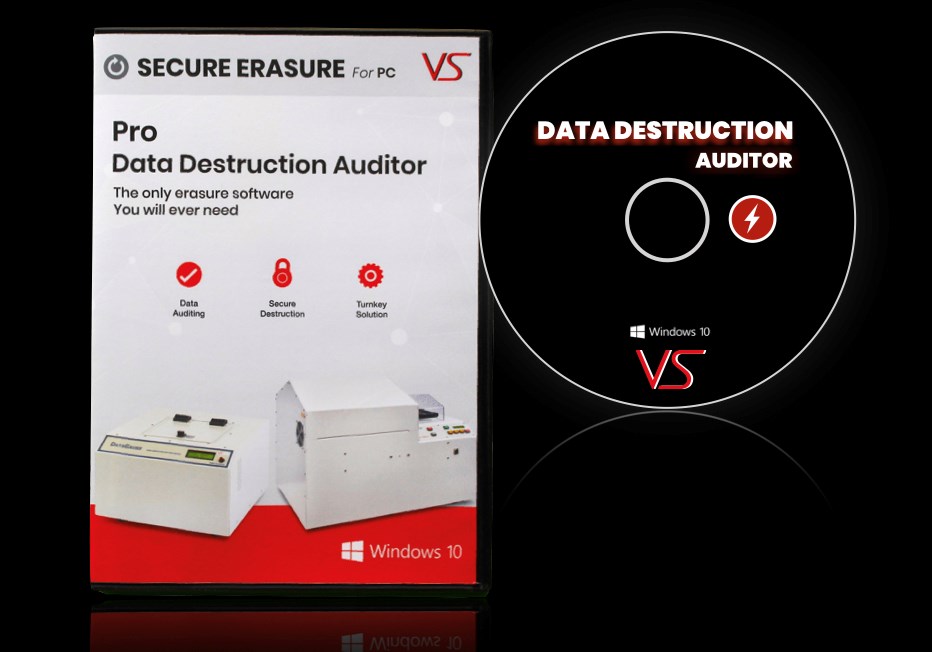Checking Out the Relevance of Information Destruction in the Context of Computer System Security Solutions and Protecting Confidential Data
In an age where data breaches are significantly usual, the value of reliable information devastation can not be overstated. Organizations must adopt strict measures to guarantee that sensitive information is not only shielded during its lifecycle yet likewise decisively gotten rid of when no longer necessary. The methods utilized for data removal, coupled with compliance to lawful standards, play an essential function in maintaining confidentiality and trust. Nonetheless, the effects of these practices extend past mere conformity, affecting a firm's credibility and functional integrity in the electronic marketplace. What strategies can companies execute to enhance their information damage procedures?
Understanding Data Destruction
Data devastation is a vital element of computer safety that involves the permanent elimination of data from storage space gadgets to stop unauthorized accessibility and potential information breaches. In a progressively electronic landscape, companies deal with increased risks connected with sensitive information being poorly accessed or manipulated. Reliable information damage safeguards against these threats, ensuring that personal dataâEUR" such as consumer info, copyright, and financial recordsâEUR" can not be recovered after disposal.
Understanding the importance of data devastation prolongs beyond plain conformity with lawful and regulative frameworks; it is essential for keeping business integrity and count on. When data is improperly managed or inadequately damaged, the repercussions can be severe, consisting of financial loss, reputational damages, and lawful responsibilities.

Approaches of Information Removal

One prevalent method is data cleaning, which entails overwriting existing information with random patterns multiple times. This method provides the initial information irretrievable, making it a popular choice for organizations looking for to safeguard confidential info.
One more approach is degaussing, which utilizes an effective magnetic area to disrupt the magnetic domain names on storage devices, effectively getting rid of the information. This method is particularly effective for magnetic media however is not appropriate to solid-state drives.
Physical destruction is an additional robust technique, entailing the shredding or squashing of storage space gadgets. This technique guarantees that data recovery is essentially impossible, making it excellent for very delicate details.
Lastly, encryption can serve as a corresponding strategy to information obliteration. By securing data prior to removal, organizations can include an extra layer of protection, making certain that also if residues are recouped, they stay inaccessible without the decryption key. Each approach needs to be picked based upon the level of data sensitivity and the particular security demands of the organization.
Legal Compliance and Information Safety And Security
Organizations have to navigate a complex landscape of legal demands associated with data security, specifically after carrying out techniques of data elimination. Different laws, such as the General Data Security Law (GDPR) and the Health And Wellness Insurance Coverage Mobility and Liability Act (HIPAA), enforce rigorous standards on exactly how companies have to take care of and dispose of sensitive data. Failing to conform with these laws can cause substantial lawful repercussions, including substantial fines and reputational damages.
Information destruction procedures should be carefully recorded to show compliance with suitable legislations and requirements. This paperwork not just functions as evidence of adherence to legal commitments yet additionally shows a commitment to safeguarding sensitive details. Organizations ought to likewise develop clear policies relating to data retention and destruction timelines, making sure image source that data is not held longer than required.

Additionally, regular audits and evaluations of information devastation techniques are vital to maintain conformity and adapt to progressing legal frameworks (data destruction). By proactively addressing lawful requirements, organizations can mitigate risks related to information violations and demonstrate their commitment to information safety and security. Eventually, prioritizing lawful compliance in data devastation procedures is not just a regulative obligation, but an essential element of a robust data security approach
Effect On Service Online Reputation
The track record of an organization can be dramatically affected by its method to information devastation and administration. In today's digital landscape, where data breaches can take place at any type of moment, the failing to appropriately dispose of sensitive info can bring about serious consequences. Organizations that improperly handle information devastation threat exposing private customer information, which not only goes against personal privacy laws but also deteriorates count on among stakeholders and customers.
A ruined credibility can lead to reduced customer loyalty, as clients become hesitant to engage with a company that has actually shown oversight in safeguarding their data. Unfavorable attention bordering a data breach can have a long-term result, as potential customers could be prevented by the perceived absence of security. This can lead to a direct decrease in income and market share.
Additionally, services that prioritize information devastation as component of their safety strategy can enhance their online reputation by showcasing their commitment to securing delicate info. By adopting rigorous data administration practices, companies can not only reduce dangers but likewise place themselves as reliable entities in their corresponding industries, consequently strengthening their general brand name image.

Finest Practices for Secure Disposal
Implementing best methods for safe disposal of information is important for alleviating risks linked with information breaches and making sure compliance helpful hints with personal privacy policies. Organizations ought to embrace a comprehensive data disposal policy that describes treatments for both go to this site electronic and physical data devastation.
For physical information storage space gadgets, such as disk drives, shredding or degaussing is advised to stop data recuperation. Furthermore, organizations must maintain a chain of protection documentation throughout the disposal process, guaranteeing responsibility and traceability of disposed products.
For electronic information, making use of software that complies with industry criteria for data wiping is essential. This software program must overwrite existing data several times, making recovery essentially difficult. It is additionally important to validate the effectiveness of the data damage procedure through audits or third-party evaluations.
Educating workers on safe and secure disposal techniques includes one more layer of safety and security, as human mistake can often cause information direct exposure. Consistently updating and evaluating disposal plans ensures placement with evolving laws and technical advancements. By carrying out these ideal techniques, organizations can substantially decrease the danger of unapproved data gain access to and improve their total data security method.
Final Thought
To conclude, data destruction is a fundamental aspect of computer system protection solutions that makes sure the defense of personal details from unauthorized gain access to. Executing effective approaches of information elimination, adhering to legal conformity, and acknowledging the effect on business reputation are important components of a thorough information safety technique. By adopting ideal methods for safe disposal, organizations can promote trust fund with clients and secure sensitive data, eventually contributing to an extra protected electronic landscape.
In an age where information breaches are increasingly usual, the importance of effective information destruction can not be overemphasized.Data devastation is a crucial component of computer system protection that involves the irreversible elimination of data from storage tools to protect against unapproved gain access to and possible information breaches. Organizations ought to additionally establish clear plans concerning data retention and devastation timelines, making certain that information is not held longer than necessary.
By proactively attending to lawful needs, companies can reduce risks connected with data violations and show their dedication to information protection (data destruction). Eventually, focusing on legal conformity in data devastation processes is not just a regulative responsibility, yet a basic aspect of a robust data security technique
Comments on “Why Data Destruction is a Vital Part of Comprehensive Cyber Security”